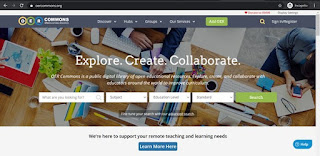(IMAESCII516) Article Review 8: 'Five critiques of the open educational resources movement' (2013)
Article Reviewed:
Jeremy Knox (2013) Five critiques of the open educational resources movement, Teaching in Higher Education, 18:8, 821-832, DOI: 10.1080/13562517.2013.774354
A number of key issues were raised
in the critiques and examinations of the Open Educational Resources (OER). The
paper began with an overview of OERs as ‘tools of resistance’ to counter the
gated and restricted access to knowledge and resources imposed by academicians
and publishers themselves. OER was considered a ‘movement’ that aimed to
promote social change by minimizing barriers to scholarly publications and
articles which raise the intellectual, social and technological consciousness of
the people. The value of promoting OERs was a deliberate attempt to promote a liberal
education.
Another perspective offered about
OERs is the restricting role of universities and higher education institutions
in accessing knowledge. Through OERs, knowledge and resources are being shared
openly to all the stakeholders of the learning community. As the traditional knowledge and learning systems continues to be
challenged by suggesting OERs in enhancing the traditional teaching and learning
processes, university and school academics have met this with staunch opposition as this takes away their intellectual domains and specialisations. But where should they cross the line between ownership and how knowledge can still remain accessible and promote change?
With learning at the heart of the
OER movement, it is important to highlight the critique that pedagogy has
dissipated when they were introduced as teacher presence is not important
anymore. However, I argue that a modified pedagogy will still be needed and although full-time presence
may not anymore be the norm, teachers can still facilitate whether in synchronous
or asynchronous sessions. This also means that OERs have the power to allow stakeholders to
sustain openness in learning through discussions and discourse. Therefore, OERs have the main responsibility to eliminate the barriers to participation of all types of learners.
However, this also means that OERs
need to appropriate target users to make the resources relevant and usable.
Rather than focusing solely on the economic angle and affordability, owners of these resources should also
focus on how to expand the breadth of users to a larger set of learners as
well - most especially the marginalised, powerless and under-represented learners.

.jpg)
Comments